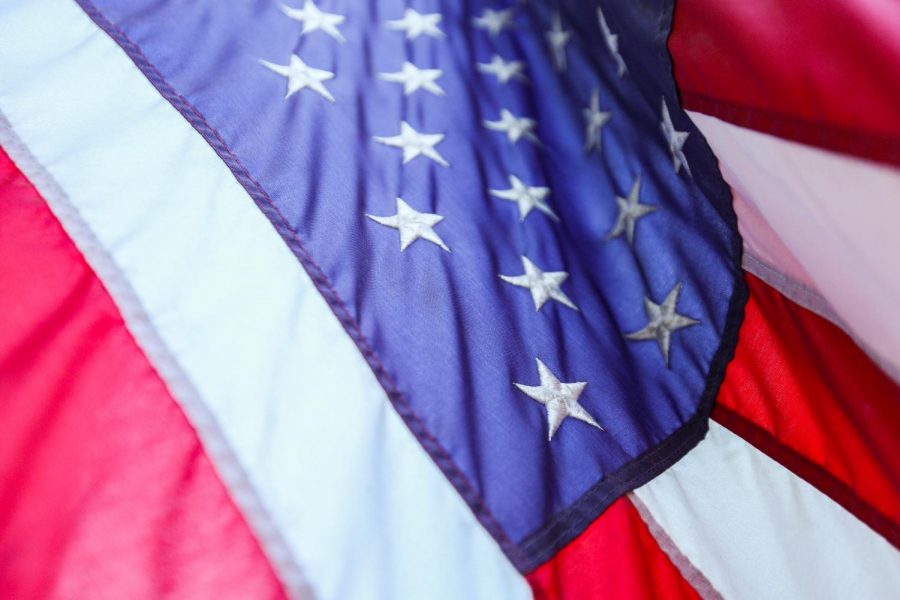Alexander: Real Patriotism is Critiquing Your Nation
September 28, 2021
If you know me, you know I’m extremely outspoken about the United States and its numerous flaws. In high school, I even wrote a speech highlighting America’s problems of inequality, incarceration and gun violence, complete with jabs at the nationalist saying of “America is number one.” I’m branded unpatriotic, inconsiderate and un-American.
The shocking part? I’m a military kid.
In our country, American exceptionalism — the idea that the U.S. is inherently superior to other nations, including our history and current society — dominates our political discourse and even our high school history classes. This idea frames patriotism as declarations of U.S. supremacy. But criticizing your country demonstrates peak patriotism. Recognizing our flaws and calling ourselves out reflects the true essence of American values.
Dr. Edmund Fong, an expert in American exceptionalism and professor at the University of Utah, describes American exceptionalism as “the environment and the formation of this country that made us kind of unique … in terms of being a place that’s favorable to freedom and liberty.”
Originating from colonial times as a justification for rebelling from England, current American exceptionalism fuels patriotism and beliefs that our country “can do no wrong,” as Dr. Fong put it. And I agree with him. But that doesn’t mean we shouldn’t feel comfortable critiquing our nation.
However, schools still teach the myth of meritocracy and American exceptionalism, making it difficult for students to grow up thoughtfully criticizing this nation. With attempts to censor truth and ban teachings of our nation’s dark history, our education systems continually downplay this country’s shortcomings and promote loyalty to our past rooted in American exceptionalism.
These actions should be a cause for concern, considering how our country’s political system was built on critiques of government and authority figures. As Americans, we have the right to condemn people in power and our nation’s institutions, especially when they fail to reflect our own American values.
My family takes this responsibility of critiquing our nation seriously. Everyone candidly expresses resentment for what the U.S. has become, especially despising our government, our policing, our schools and our healthcare systems. This criticism comes from a place of hope and experience — hope that our country can improve from what it is now and our experiences of serving in the military.
My father, uncle and grandfather are retired Navy veterans. My mother also served in the Navy, and my other grandfather is a retired Marine. I uprooted my life several times for my parents’ deployment, moved to different countries and military bases, watched my father get sent off to Afghanistan and witnessed the return of brave soldiers in caskets. Wanting to make my parents proud, I joined the AFJROTC at my high school.
And because of my experiences with the military, I don’t believe in U.S. supremacy. Neither do my folks. And neither should you.
Support for U.S. supremacy includes patriotic celebrations. Our current displays of patriotism are haphazard and inappropriate, to say the least. On the 4th of July, we see it in the form of American-flag bikinis and flags flying from truck beds, which violate flag code. When remembering Sept. 11, we claim that the event unified the nation when in reality, Muslims and people with brown skin suffered and still suffer hate crimes and prejudice. People even use Memorial Day as an excuse to get drunk.
These acts do not exemplify patriotic celebration and are actually incredibly disrespectful to millions who lay their lives on the line for American values. They break down the work of my family and other military families, and don’t promote respect or gratefulness for our troops.
While there is nothing wrong with believing in and defending our country, we can’t turn a blind eye to past wrongdoings. American exceptionalism covers up our shortcomings, and in turn, hinders our ability to criticize the nation. Dr. Fong perfectly highlighted that “the true patriot is someone who recognizes how this country may not be living up to what it could be, and is committed to working towards that.”
In order to dismantle American exceptionalism and rid our nation of nationalist patriotism, we must understand American history and utilize it to educate others — understand that the U.S., like any other country, is not perfect, but we should strive towards perfection.
It’s okay to stand in solidarity with our fellow Americans. It’s okay to celebrate the red, white and blue. But stop using patriotism and nationalism synonymously, because we are a nation among other nations who also strive for good.
What I want to see from my fellow Americans are respectful and knowledgeable celebrations for the dedication of all our military’s efforts. I also want to see more criticism of our nation, of the institutions we employ, of the people we elect and other aspects of this country.
For the hard work and sacrifice of my family members and many others in protecting American values, please utilize our right of criticism to rid our nation of the evils within.








